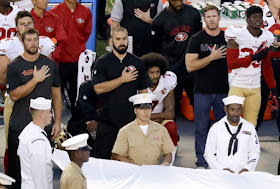Although no human rights instrument or constitution grants the absolute right to protest, that right is a manifestation of the right to freedom of speech, the right to freedom of assembly, and the right to freedom of association. The right to protest or to peaceful assembly is critical to a functioning democracy and at the core of the First Amendment.
Protest, itself is a form of collective action and of social movement participation at the same time. There is a vast array of specific protest behaviors that people might exhibit. Wright et al. (1990) have proposed a framework based on three distinctions:
* The first between inaction and action,
* The second between actions directed at improving one’s personal conditions (individual action) and actions directed at improving the conditions of one’s group (collective action).
* The third distinction is between actions that conform to the norms of the existing social system (normative action like petitioning and taking part in a demonstration) and those that violate existing social rules (non-normative action like illegal protests and civil disobedience).
(S.C. Wright, D.M. Taylor, and F.M. Moghaddam FM (1990) “The relationship of perceptions and emotions to behavior in the face of collective inequality.” Social Justice Research. 1990.)
"I am not going to stand up to show pride in a flag for a country that oppresses black people and people of color," Kaepernick told NFL Media in an exclusive interview after the game. "To me, this is bigger than football and it would be selfish on my part to look the other way. There are bodies in the street and people getting paid leave and getting away with murder."
Both the 49ers and the National Football League recognize the right of an individual citizen to choose not to participate in the celebration of the national anthem. Yet, of course, the NFL encourages player participation.
Kaepernick said that he is aware of what he is doing, has discussed his feelings with his family, and knows it will not sit well with a lot of people, including the 49ers. He said that he did not inform the club or anyone affiliated with the team of his intentions to protest the national anthem.
(Steve Wyche. “Colin Kaepernick explains why he sat during national anthem.”
nfl.com. Aug. 27, 2016.)
Even President Obama weighted in on Kaepernick's actions. The President said that he did not doubt Kaepernick's sincerity in attempting to highlight social issues and noted that the player was the latest in a long line of professional sports figures to do so. However, Obama also acknowledged that Kaepernick's silent protest was a "tough thing" for many members of the military to accept.
What
about disrespecting that flag that has given
you the freedom to speak
out?
What really frosts most of us with patriotism is the perceived lack of simple homage by Kaepernick. We view him as a successful, prosperous, American public figure choosing the wrong form of protest – refusing to honor the flag – at an inopportune time – during a widely covered NFL football game. We think he is “biting the hand that has fed him so well” and being a selfish opportunist.
Kaepernick’s former coach placed an interesting frame around the entire debate about the protest. Jim Harbaugh, who now coaches the University of Michigan football team, said, “I support Colin’s motivation. It’s his method of action that I take exception to.”
Yet, Matt Vasilogambros, a senior associate editor at The Atlantic, pointed out: “Reaction isn’t about his motivation. It’s about his method. Kaepernick’s motivation was lost.” He claims the out-roar is mainly about “how we should protest in this country.”
(Matt Vasilogambros. “Did Colin
Kaepernick's Protest Fail?” The
Atlantic. August
30, 2016.)
Should any employer or government limit “how” we should protest as long as it is legal? It seems that any such intrusion would destroy our absolute right to expression about present conditions.
So, to
acknowledge that Kaepernick meant to use his celebrity and his
position to address race and criminal justice reform is to understand
that his protest against the
norms of the existing social system is effective in bringing
attention to needed change. His rightful expression may be
distasteful, yet it must remain an ultimate gesture of protected
protest in our great democracy.
“What should horrify Americans is not Kaepernick’s choice to remain seated during the national anthem, but that nearly 50 years after [Muhammad] Ali was banned from boxing for his stance and Tommie Smith and John Carlos’s raised fists caused public ostracization and numerous death threats, we still need to call attention to the same racial inequities. Failure to fix this problem is what’s really un-American here.”
In the end, Colin Kaepernick is the sole owner of his unrest and protest. Others are joining him now, but only he understands his authorship of expression. We can argue about how Kaepernick is using the system to take out personal frustrations all day long, but, deep down, we know that we too have our individual beliefs – beliefs that include limits of intrusion and convictions of expressions. We too have rights to take actions when we feel oppressed or aggrieved. We too need no one else to approve of our protest.
We can damn Kaepernick for his lack of respect and his lack of patriotism. At the same time, we must each ask ourselves what we might do if confronted with similar oppression of our basic liberties. Some surely do choose much more violent and wrongful means of protest than refusing to come to attention for the National Anthem. In the case of Colin Kaepernick, his method of protest is highly symbolic. It may evoke hatred or esteem for the quarterback, yet it does not imperil innocent citizens in its shame of a nation still struggling to meet its promises.


No comments:
Post a Comment